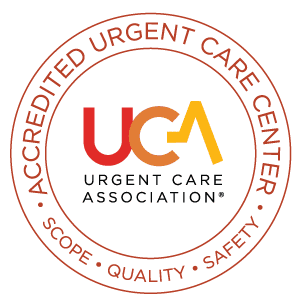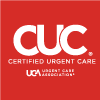As a patient in a New Jersey Urgent Care, you have the right to:
Medical Care
- Receive an understandable explanation from your doctor of your complete medical condition including recommended treatment, expected results, risks and reasonable alternatives. Your next of kin or guardian must be informed if your doctor thinks that some of this information would be harmful to your health or beyond the scope of your comprehension.
- Give informed written consent prior to the start of specified, non-emergency medical procedures or treatments only after your doctor has explained—in terms you can understand—the specific details about the recommended procedure or treatment, the risks, duration of recovery and reasonable medical alternatives.
- Refuse treatment and medication to the extent allowed by the law, after being advised of the potential medical repercussions.
- Receive appropriate assessment and treatment for pain.
Special Needs
- Patients and family members who are hearing impaired or sight impaired, or who have any other disabilities, are encouraged to request for special assistance. Please notify an Urgent Care staff member immediately who will make the necessary arrangements.
- To address inquiries, comments, or complaints to a particular staff member and to get a response in a timely manner, the Urgent Care facility is required to give you the contact information for the New Jersey Department of Health and Elderly Services, which handles inquiries and grievances, including its address and phone number. By directly calling (800) 792-9770, you can immediately reach the NJ Department of Health Complaint Hotline.
NJ Department of Health and Senior Services
Healthcare Quality and Oversight
P.O. Box 358
Trenton, NJ 08625
Communication and Information
- Be treated politely, considerately, and with respect for your individuality and dignity.
- Know the titles and functions of all doctors and other medical personnel who are directly responsible for your care.
- If necessary, have a translator or interpreter readily available to communicate with the Urgent Care staff.
- Know the names, positions, and responsibilities of other medical specialists and academic institutions involved in your care. You have the right to either decline or allow them to take part.
- Be advised in writing of the Urgent Care’s rules regarding the conduct of patients and visitors.
- Receive a summary of your rights as a patient, including the name(s) and phone number(s) of the Urgent Care staff to whom you are to direct questions or complaints about possible violations of your rights. You have the right to request paperwork in your native language and it will be supplied, if possible.
Medical Records
- Have prompt access to your medical records. But if your doctor believes that access to this medical information would harm your health, your guardian or next of kin instead has the right to access your records.
- Obtain a copy of your medical records for a reasonable fee within 30 days after submitting a written request to the medical records department of the Urgent Care.
Cost of Urgent Care:
- Receive a copy of all the charges, an itemized bill, if requested, and an explanation.
- Appeal any of the charges and receive an explanation of the appeals process.
Discharge Planning
- Be informed about any need for follow-up care and receive assistance in obtaining this care required after your discharge from the Urgent Care facility.
Privacy and Confidentiality
- Be given physical privacy for medical procedures and personal hygiene tasks unless you require assistance.
- Be assured confidentiality about your patient visit. Your medical and financial records shall not be released to anyone outside the Urgent Care facility without your approval, unless you are transferred to another facility that requires the information, or if the release of said information is allowed and required by the law.
Freedom from Abuse and Restraints
- Be free from physical and mental abuse.
- Be free from restraints unless authorized by a doctor for a limited period to protect your safety or the safety of others.
Civil Rights
- Receive treatment and medical services without discrimination based on race, age, sex, sexual preferences, national origin, health diagnosis, handicap, ability to pay or source of payment.
- Exercise your constitutional, civil, and legal rights.
Questions, Complaints and Appeals
- Ask questions or file grievances about patient rights with a designated staff member and receive a response within a reasonable period.
- Be provided, by the Urgent Care facility, with contact information for the New Jersey Department of Health and Senior Services unit that handles questions and complaints.
Please Note:
If you believe the care provided to you in our facility by a doctor or Urgent Care staff was improper, you may file a complaint with the Board of Medical Examiners.
Note: The regulation of Urgent Care clinics and hospitals falls within the jurisdiction of the New Jersey Department of Health, if you believe you received improper care by any of the Urgent Care staff members, you should contact the New Jersey Department of Health complaint section at (800) 792-9770.
Patient’s Responsibilities
The care you receive as a patient partially depends upon your active involvement. As your healthcare providers, we believe that you and your family contribute to the safe delivery of care. These responsibilities include:
- Providing information. You and your family are accountable for providing accurate and complete information including current complaints, past illnesses, hospitalizations, previous surgeries, allergies, medications, risks in care that you noticed, unforeseen changes in your health condition and other matters relating to your health.
- Asking questions. You and your family are accountable for asking questions when you do not understand what healthcare providers have told you about your diagnosis, treatment, and care.
- Following instructions. You and your family are accountable for adhering to the care, service, or treatment plan created for you. Any worries you have regarding your ability to adhere to and comply with the suggested plan or course of treatment should be expressed.
- Accepting results. You and your family are accountable for the consequences should you fail to adhere to the care, service, or treatment plan.
- Following facility rules and regulations. You and your family are accountable for adhering to the Urgent Care facility’s rules and regulations regarding patient care and conduct.
- Showing respect and thoughtfulness. You and your family are responsible for being thoughtful of the Urgent Care facility’s personnel and property.
- Meeting financial commitments. You and your family are accountable for promptly fulfilling any financial commitment agreed to with the Urgent Care facility.
- You and your family are also accountable for being considerate towards other patients, assisting with noise and disruption management, adhering to the tobacco-free policies, and showing consideration for other people’s property.



